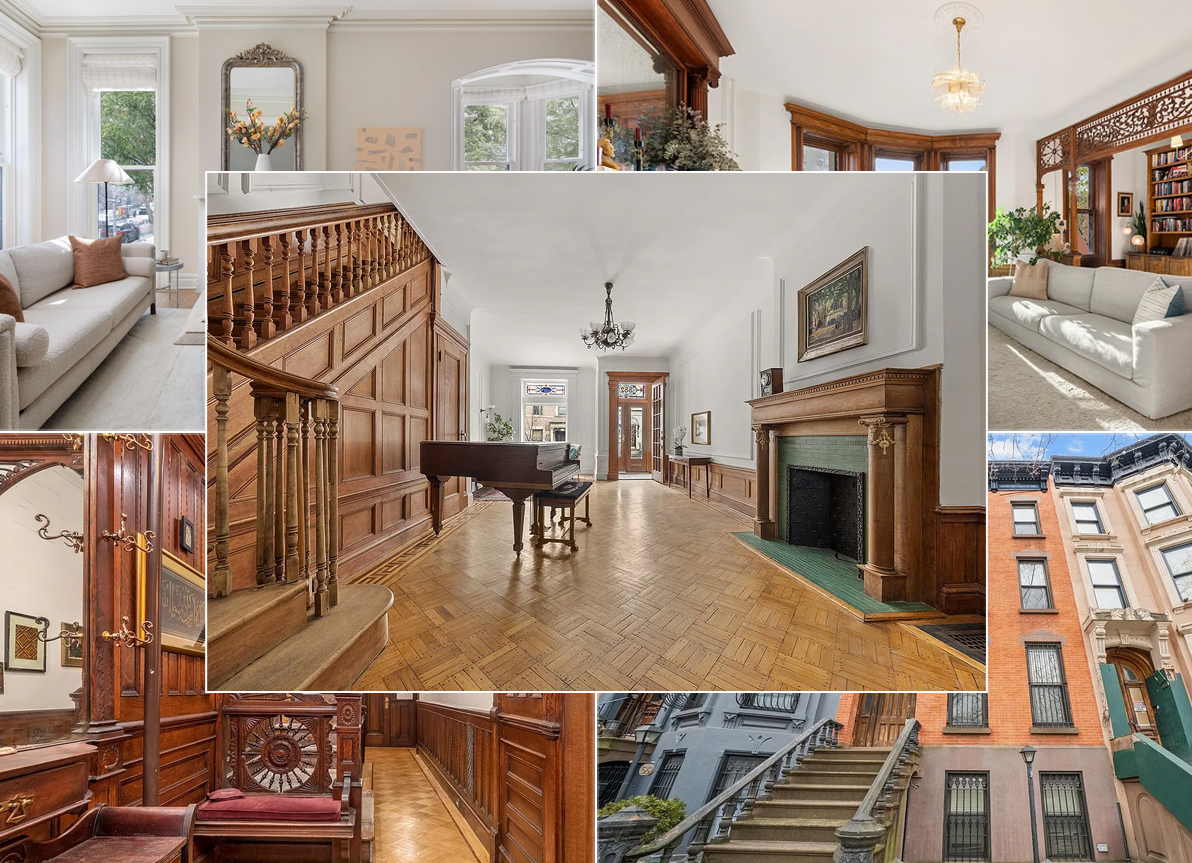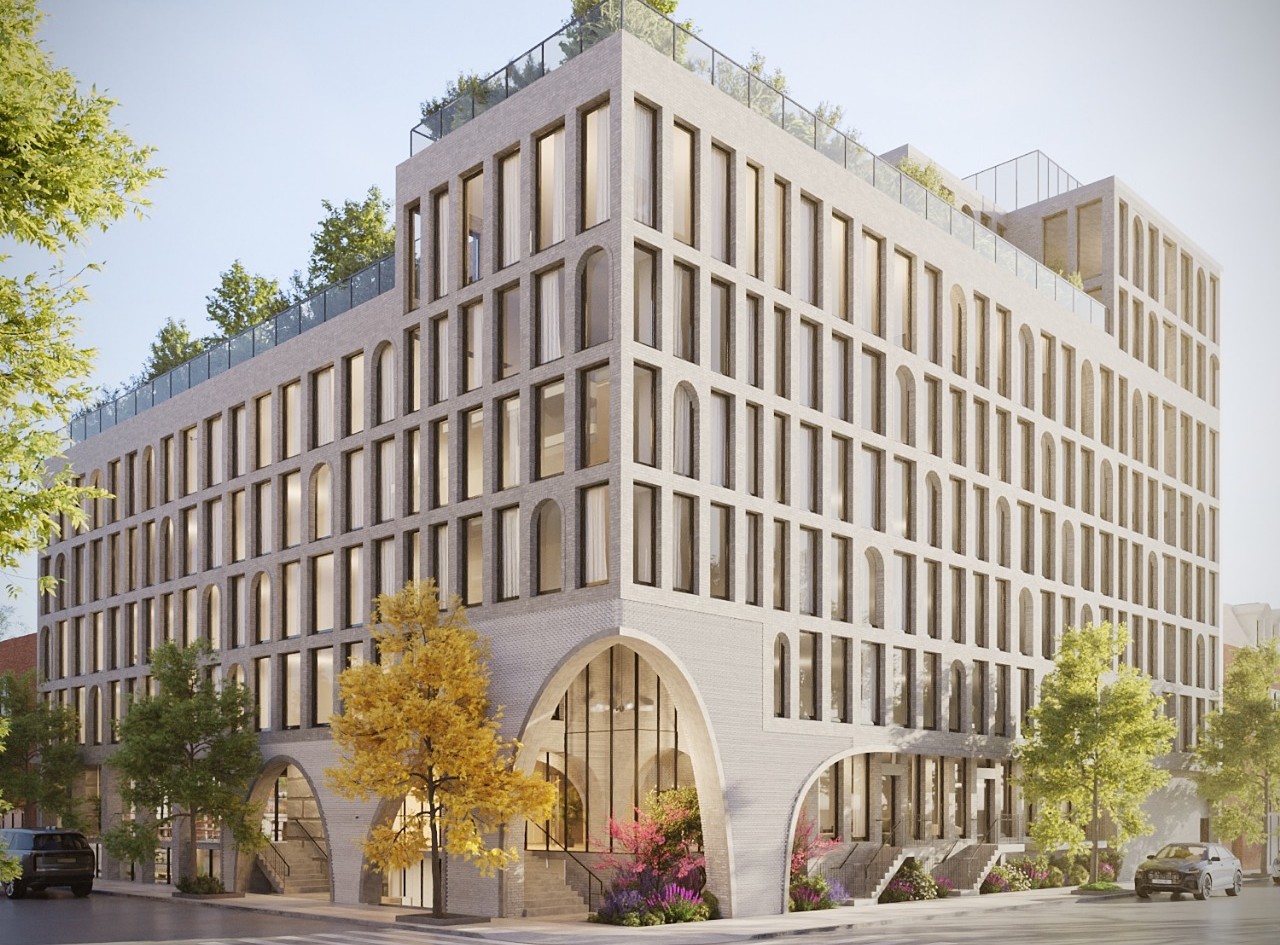Greedy Landlords Causing Storefronts to Sit Empty?
The Daily News has a story about how the one-two punch of unrealistically high asking rents and the recession has resulted in a number of empty storefronts in brownstone Brooklyn. Cases in point, where retail spaces are still empty after rent increases: the dry cleaner on Court and Baltic that had to vacate after the…


The Daily News has a story about how the one-two punch of unrealistically high asking rents and the recession has resulted in a number of empty storefronts in brownstone Brooklyn. Cases in point, where retail spaces are still empty after rent increases: the dry cleaner on Court and Baltic that had to vacate after the landlord hiked the rent from $2,500 to $6,500 a month; Royal Video, above, which left its old Flatbush Avenue spot for a smaller one after the landlord was said to be asking $10,000 a month for the space; and a Myrtle Avenue shoe repair that shut down this fall. It seems, however, that while there are certainly examples of greedy/delusional landlords to be found, there aren’t an overwhelming number of fresh vacancies on the main retail drags in Cobble Hill, Prospect Heights, and Park Slope—that these guys tend to be the exception, rather than the rule. Thoughts?
Brooklyn Storefronts Empty [NY Daily News]
Photo by plangently.





Thats no loophole!!! read it closely – the Arbitrator renders a decision on the rent – the tenant refuses to re-sign at the arbitrated rent, the tenant is then ALLOWED TO STAY at a rent = no more that 5% greater than the final rent of the leasehold UNLESS there is a “bona fide” offer from a third party – therefore the existing tenant can arguably stay forever (at a 5% escalation) over the objection of the LL UNLESS some other prospective comes out of the woodwork. Some loophole!
Dibs;
You call that a loophole?? I think not. It gives a right of first refusal to the current tenant, based upon CURRENT market offers. If I’m reading it right, therefore, it takes away the landlord’s ability to just not rent the place at all, and wait for market conditions to improve.
Another good reason Thompson isn’t mayor. And i’m not a commercial landlord.
This kind of shit is foolishness. The loophole will be easy to slip through.
DIBS – the legislation didn’t “not pass” it wasnt voted upon cause they dont have the ONE vote they need to pass over a promised Mayoral veto (if Thompson was Mayor it would pass)
and I have alot of experience with commercial leases and yes most have clauses for escalations (not all btw) and many cover taxes (like proportion of water or RE etc, again not all)
but this legislation would take all these negotiating issues out of the hands of the parties and have arbitrators dictate the rent to LLs (tenants could still chose not to renew) – if this isnt rent control than what is.
BTW – Ill take your last post as acknowledgment that I am RIGHT…the proposed legislation makes the arbitration binding on LL (wonder why you didnt make your error more clear? hmm)
And, here’s the loophole….
“In the event the landlord receives a written bona fide offer from a prospective tenant to rent the premises, the landlord must first offer the current tenant the option of entering into a lease at the rent and other terms agreed to by the prospective tenant to the landlord.”
I read the summary in the link.
With that type of wording, it’s no wonder it didn’t pass.
Nor will it. Landlords are a more powerful group than small businesses when it comes to these matters.
Renewal is not a RIGHT and never will be.
Not sure how much experience you have with commercial leases but it’s not like they are a fixed a mount anymore over the life of the lease. They do go up every year. Also, they cover any increase in RE taxes
DIBS – Your reading comprehension leaves a bit to be desired.
The legislation works like this
1. Commerical Tenant has RIGHT to renew lease at expiraration
2. LL MUST renew unless certain exceptions (chronic non-payment, usuage in violation of existing lease, plans to use space for him/herself….)
3. If LL agrees to renew and no agreement on rent then goes to arbitration (which considers such factors as PAST rent – the longevity of the tenants business, the location of the buisness, the rate of return on Treasuries….)
4. If LL DOES not agree to renew based on exemption (must otherwise because renewall is a RIGHT)- then there is arbitration on validity of LL’s claim of exemption and assuming exemption is not valid then Tenant can have Arbitration on rent level – since renewall is a RIGHT)
5. The decision on RENT LEVEL is binding – EXCEPT the tenant does not have to renew – which makes it binding on the LL and NOT binding on the tenant – since you are having trouble understanding here is the ACTUAL tect from the relevant section:
(f) The arbitrator’s decision setting the rent price shall be final and binding on both parties except as
provided herein, and they shall enter into a lease incorporatingsuch rent which lease does not diminishany
services provided by the landlord pursuant to the existinglease. Such renewal lease shall be entered into by the
termination date of the current lease and shall commence at the time of expiration of the existing lease. If,
however, the tenant elects not to pay the rent set by the arbitrator, then the landlord and tenant shall not enter
into a new lease agreement or renew the existing lease.
(g) If, pursuant to subparagraph 3(f) of this subdivision, the tenant elects to not pay the rent set by the
arbitrator, the tenant will be allowed to remain in possession at a rent no greater than a five percent increase of
the average rent charged during the final twelve months of the last rental agreement between the landlord and
tenant from the terminationdate of the existinglease untilsuch date on which the tenant shall remove his or her
property from the premises as provided herein. In the event the landlord receives a written bona fide offer from
a prospective tenant to rent the premises, the landlord must first offer the current tenant the option of entering
into a lease at the rent and other terms agreed to by the prospective tenant to the landlord. The landlord is to
notifythe tenant of such offer withinthree days of receipt of such written bona fide offer. If the tenant declines
to pay the rent or fails to accept the offer within fourteen days of receipt of the landlord’s notificationto the
tenant of such offer, then the tenant has thirty days, from the date such notice is received, to remove property
from the commercial premises provided that the lease has expired. If the tenant accepts the option of first
refusal, the landlord and tenant shall enter into a lease based upon the terms of the bona fide offer received by
the landlord from the prospective tenant.
“storefronts that have seemed to sit vacant long time on Smith St.”
Pete, there have never been any vacant storefronts on Smith Street! ; )
I realize all that, fsrg. What I’m most concerned with are commercial landlords who have long term tenants whom they drastically raise the rents on, forcing them out. I saw the garment, trim, bridal and flower districts go through this- to name but a few. All of those businesses were economic engines across the city and the country. Yes, there were many other factors in the changes. But that was a huge one. The effects were wide-reaching, whereas today there is more money concentrated in fewer and fewer areas. As the economic benefits contract, so does our ability to create jobs and decent living conditions. We seem to be an every man for himself kind of place, and that is terribly short-sighted.